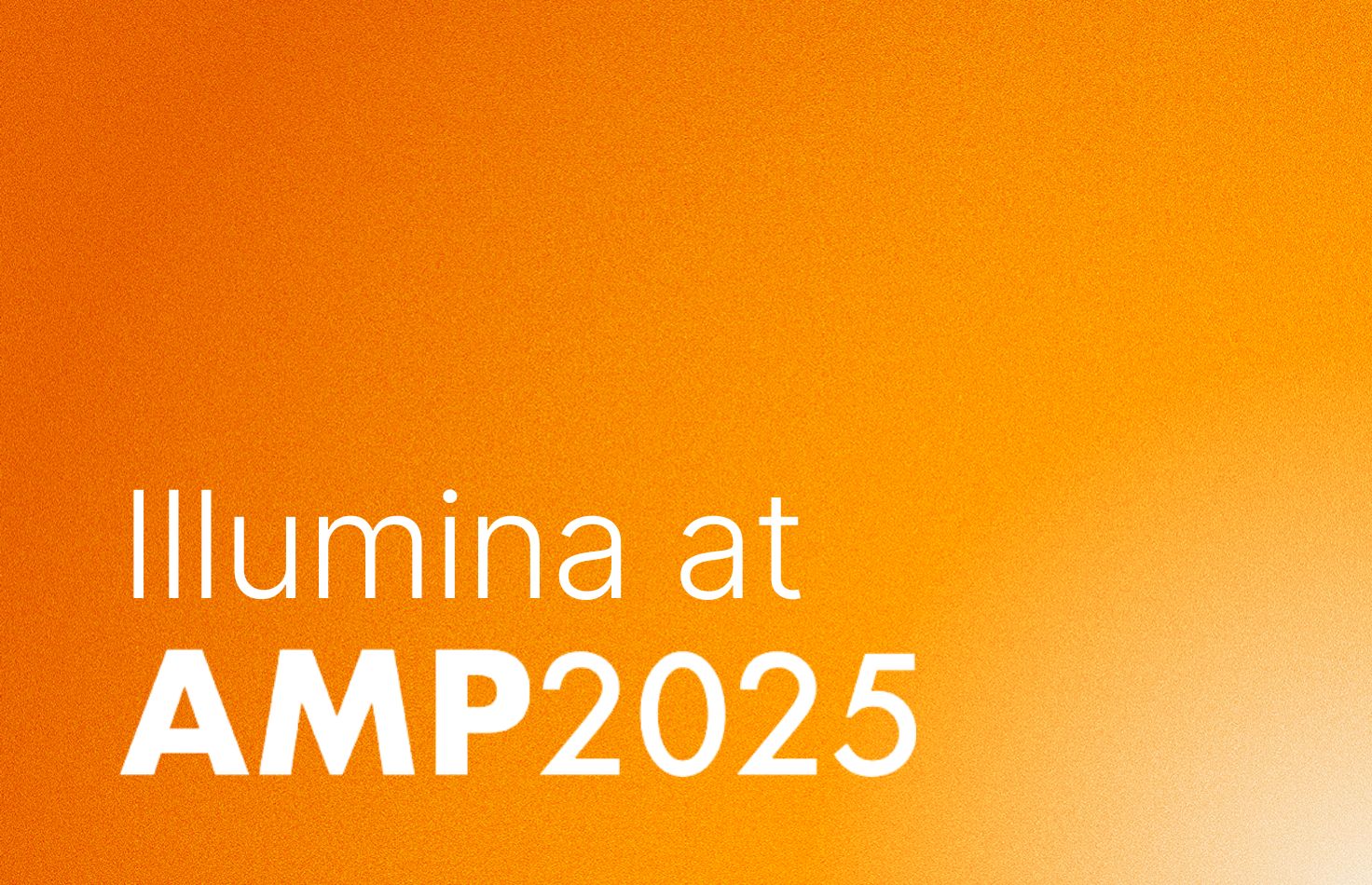
Details
Join us at Illumina booth 719 to explore streamlined and trusted sample to report workflow options from the Illumina ecosystem.
Our booth will highlight the MiSeq i100 system, NextSeq 1000/2000, automation options, informatics solutions demo stations, IVD corner featuring FDA-approved TruSight Oncology Comprehensive and Pillar oncoReveal, and Medical Affairs & Market Access education and consultation opportunities.
Illumina Corporate Workshops and Innovation Spotlight talk will feature our customers’ successful implementation of Illumina products in a community setting, expanding their menu of options, and adapting end-to-end workflow solutions. Learn more about our talk topics and presentation details below.
Wednesday, November 12
Illumina Corporate Workshops
The value of internalizing CGP NGS testing for community oncology practice: A panel discussion
12 noon–12:50 PM (ET)
Room 156C, Level 1
As CGP testing rates increase, community oncology practices are choosing to implement in-house testing. Many factors influence their decision on a suitable solution including, but not limited to panel content and attributes, oncologists’ preferences, lab expertise, and regulatory and reimbursement requirements. An expert panel discussion with a community-based pathologist, oncologist, and laboratory director will address:
- Parameters for consideration in assay selection (IVD vs LDT, RNA + DNA content, ease of implementation)
- Implementation data, process and feedback from two community site’s experience with the FDA-approved TruSight Oncology Comprehensive
- Value to network oncologists and patients

Thomas Stricker, MD
Technical Director, Center for Genomics and Molecular Studies
Tennessee Oncology
Medical Director, Precision Medicine
OneOncology

Kash Firozvi, MD
Oncologist, Medical Director of Cancer Services
Maryland Oncology Hematology

Ramaswamy Iyer, PhD
Lab Director
Maryland Oncology Hematology
New paradigms for diagnosis of CNS tumors, sarcomas, and kidney tumors utilizing AI-driven DNA methylations classifiers
3 PM–3:50 PM (ET)
Room 159, Level 1
Applications using AI data-driven DNA methylation classifiers vastly improve accuracy in solid tumor classifications, especially for brain, sarcomas, salivary gland and kidney tumors.
DNA methylation is becoming an indispensable part of solid tumor diagnostics. Epigenetic signatures analyzed using AI and machine learning algorithms provide molecular diagnostic tools which overcome routine pathology inaccuracies. Precise molecular diagnosis and prognostic subclassification guides clinical decision from early in the workup process by decreasing diagnostic uncertainty and errors. Dr. Matija Snuderl and Dr. Kyung Park of NYU Langone Medical Center share their work developing and implementing DNA methylation-based classification of tumors and integration with other molecular tests.

Matija Snuderl, MD
Professor, Department of Pathology; Director Molecular Pathology
NYU Langone Health

Kyung Park, MD
Clinical Associate Professor
NYU Grossman School of Medicine
Demystifying MRD with BloodPac: Navigating clinical and technical pathways for comprehensive cancer monitoring
4 PM–4:50 PM (ET)
Room 156A, Level 1
Minimal Residual Disease (MRD) testing is transforming cancer care, yet significant variability remains across technologies, indications, and clinical integration. This panel brings together experts from both industry and clinic to demystify MRD testing, discuss emerging best practices, and provide guidance on clinical and technical considerations.
The session will explore indication-specific requirements, the emerging value of whole genome sequencing (WGS)-based MRD approaches, and the evolving debate between tissue-informed and tissue-agnostic strategies. Attendees will gain practical insights into optimizing MRD testing workflows to enhance patient outcomes, while aligning with regulatory, scientific, and clinical standards.

Lauren C. Leiman
Executive Director and CEO
BLOODPAC

Jim Godsey, PhD
Scientific Co-Chair Committee
BLOODPAC

Traci Pawlowski, PhD
VP, Head Clinical Solutions
Illumina
Scientific Co-Chair Committee
BLOODPAC

Aparna R. Parikh, MD
Associate Professor, Medicine
Harvard Medical School
Oncologist
Massachusetts General Hospital Cancer Center

Jonathan Beer
Senior Director, Precision Medicine Lead
Bristol Myers Squibb
Friday, November 14
Innovation Spotlight Session
Precision at scale: Operationalizing high-quality oncology variant interpretation with Illumina informatics at BC Cancer
12 noon–12:30 PM (ET)
Theater Exhibit: Stage 2
Recent breakthroughs in informatics are transforming precision oncology research, streamlining interpretation and reporting of NGS data to deliver more accurate, meaningful insights at scale across advanced applications.
In this session, attendees will learn how leading oncology institution, BC Cancer, transitioned to Illumina informatics to operationalize somatic variant interpretation. Integrating an established workflow and knowledgebases, BC Cancer leverages sophisticated curation capabilities to generate higher quality, more relevant findings at scale.
Attendees will also get a preview of the latest innovations in Illumina informatics for key oncology applications including CGP, WGS analysis for hemopoietic disorders, and MRD detection.

Mark Mooney, PhD
Associate Director, Software Product Management
Illumina

Curtis Hughesman, PhD, P.Eng
Laboratory Scientist
Cancer Genetics and Genomics Laboratory at BC Cancer
- Date & Time
- 11 Nov. 2025 – 15 Nov. 2025
- Location
- Thomas M. Menino Convention & Exhibition Center (MCEC)
Illumina booth 719
Boston, Massachusetts
Exhibit hours
Thu. Nov. 13: 11:15 AM – 7 PM (ET)
Fri. Nov. 14: 9 AM – 4 PM (ET)
Sat. Nov. 15: 9 AM – 1:30 PM (ET) - Topic
- Oncology